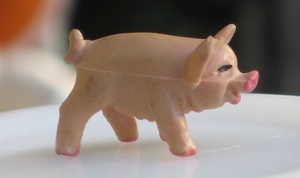So sick of Wall Street and its bonuses today, sick of Goldman Sachs (pig!) , sick of AIG’s yacht-loving executive, and Ted Geithner and Larry Summers and Bernanke! Very sick of them. Instead, I’m thinking about social ism today. I avoided putting it in one word so you wouldn’t choke; I know how Americans don’t like saying or hearing the word. It’s as if you all lived during the 50s.
, sick of AIG’s yacht-loving executive, and Ted Geithner and Larry Summers and Bernanke! Very sick of them. Instead, I’m thinking about social ism today. I avoided putting it in one word so you wouldn’t choke; I know how Americans don’t like saying or hearing the word. It’s as if you all lived during the 50s.
I’m thinking, not a full system of socialism but just some good practices which are generally or vaguely socialistic. So everyone can just relax.
To segue to a discussion of them, against my first instinct I will quote Ilargi of theAutomaticEarth. Ilargi, hidden man of the financial industry, is a doomsayer. He scares me, sometimes, with his proclamations: that living in the suburbs is a trap, that everyone should buy gold, that the world’s going to end, yadda and yadda. He is a smart guy but doesn’t seem to understand the American governing method of making things palatable for the public, of preserving appearances. Utter economic destruction is unpopular, so if only for that reason the government will do things to avoid a lot of it. It won’t do it well, but it’ll do it. Therefore his Armageddon world will not really arrive. Nevertheless I find important quotes in his writings that are worth remembering and are even of use buttressing oneself against despair. This, for example:
“…the stock market is not the real economy. And neither is it representative of that economy, in fact it’s probably less so now than at any point in the recent past. And it can turn in a second and on a dime.”
I’ve said before that stocks, which rise and fall influenced largely by reports (and rumors) from the issuing companies, are not a measure of the economy the ordinary person lives in. The megacorporations have changed their very accounting equation, faking their numbers, and their manipulation of their supposed assets and losses is being tolerated by the federal government.
If “the stock market is not the real economy” right now, we may have some power over our own economic futures after all. Obviously the financial sector is not who would read this blog, so you, sitting across the screen from me, are probably one of the middle class. That same middle class Elizabeth Warren says is caught in a vise. We — we are closer to the underpinnings of the economy than Wall Street is. We consist of the workers, the small businessmen, the professionals, and so on. If the stock market isn’t an accurate picture of anything in our lives, I wonder if we can’t start creating our own economy, distinct and separate.
It would take a lot of humanity and patience, and a lot of people. A lot of people acting cooperatively. Here are some actions we’d need to take:
1. Searching for new green industry — and more important, small greener practices — to invest in, buy, or start up. Small green spots are what I have in mind, really; individuals beginning in ones or twos to start buying a thing which is renewing… or renewable. Like using red worms and compost for your lawn instead of a chemical-based lawn service. Chemicals mean big corporation, usually; red worms mean small farmer. Go on from there, and go bigger, finding more green practices and industries.
2. Formation of tiny groups to support one another in other ways, especially when it comes to financial ventures. We need Kiva lending here! In colonial America, some religious and ethnic groups formed their own trade groups; groups which trusted their members if only because they were of the same faith or background. I used to hear, on the radio, ads for a Christian group that provided a sort of health insurance for each other just by paying one another’s medical bills. I’ve no idea how it worked out, and suspect it was a big scam but if it wasn’t it may also have tanked due to being unreasonable. However, it suggested the vast power there could be in joining a like-minded group. But today we see betrayal of that sort of grouping in the Bernie Madoffs, Ted Haggards, etc., etc. If we are subject to the social phenomenon known as the Big Sort, we can also change the way in which we sort ourselves. And it is not really a “sorting” if outsiders are welcome to join the contract. Example: food co-ops. You can buy here if you do some work here. And credit unions, that’s another example. We’ll give you a loan because you’ve kept your money here for a certain period of time, and you pay your bills on time too.
3. Patch Adams-types of solutions for health care. Greater equality among participants in every aspect of the health care system. (It is, actually, proper to call it a “system,” since it is a natural part of our lives.) The Gesundheit Institute and its friends have done mountains of work on this and other subjects.
4. Purchasing a real item of value instead of buying stock. De-sophisticating the economy. If the banks too big to fail are getting bigger; if the financial houses are again engaging in the same risky practices that brought down the economy; if the government is not regulating the banks and financial industry enough, then all stocks are a much, much bigger gamble than they appear. It’s enough to make you want to buy not just precious metals, but timberland acreage and other things that ordinary people actually need. Trucks, tools, building material, livestock, even large appliances for heating and cooling. Since most of these things can’t be squirreled away like savings, you’d have to use them, rent them out, or sell them. Each of which involves difficulty, but at least you have control over the process. Successfully sell or rent your assets, and you’ve become a business…
Small businesses may be the best things for the (real) economy. They tend to use extra money to buy new equipment and even new people: employees. They are the big consumers and the big job creators, not Wall Street and not the government. The smaller they are, the less likely they are to be speculating on Wall Street with their cash. Small is good.
While I’m climbing Dream Mountain, I imagine masses of people moving their money out of the stock market and putting it to work themselves. Not putting their faith in big corporations (which have acted without good faith). With the exodus of lots of investors, the stock market would shrink. Making the whole “economy” much more real, easier to participate in. Making it sturdier. Making it stronger.
Okay, I don’t have the background to analyze what the result would be to a growth-dependent economy, but the stock market lived and breathed for decades well below the frantic trading levels we see today. It could do so again.
No, I can’t replace people’s 401Ks and IRAs with anything yet, not quickly. Slow-growth investments like bonds can’t cut it yet, maybe, not by themselves. But if you do your own stock-picking for your financials, you should keep in mind what just happened in our economy and everyone seems to want to forget. The financial industry destroyed a great deal of what you’d been saving for years. They did it for themselves. And they are working themselves back to that position again, saying we need that old bonus system and huge executive compensation so they can keep the same sort of “creativity” on Wall Street. You know — “creative,” like financial derivatives are “creative” products. Oh, they’re creative all right. And magic too. They made millions of houses vanish.
No, that’s incorrect — the houses are still there. (Missing some copper wiring and pipes, though.) Their magic trick was to turn millions of homeowners into street people. Abra-Cadabra. Poof!
Rather than putting all your eggs in that same rotten basket you could set some aside, let them take their chance in the world and become chickens. Not all of us are good at raising chickens but you could try, and join a group of chicken-raisers or something. It’s a risk. It’s always a risk.
………….. Boy, I almost let that mention of Goldman Sachs (pig!) in the first paragraph go without putting the word pig beside it.
in the first paragraph go without putting the word pig beside it.


 , sick of AIG’s yacht-loving executive, and Ted Geithner and Larry Summers and Bernanke! Very sick of them. Instead, I’m thinking about social ism today. I avoided putting it in one word so you wouldn’t choke; I know how Americans don’t like saying or hearing the word. It’s as if you all lived during the 50s.
, sick of AIG’s yacht-loving executive, and Ted Geithner and Larry Summers and Bernanke! Very sick of them. Instead, I’m thinking about social ism today. I avoided putting it in one word so you wouldn’t choke; I know how Americans don’t like saying or hearing the word. It’s as if you all lived during the 50s. in the first paragraph go without putting the word pig beside it.
in the first paragraph go without putting the word pig beside it.
 is mentioned by me that I will bring in the pig. This is the pig we own, the pig we are supporting.
is mentioned by me that I will bring in the pig. This is the pig we own, the pig we are supporting. , CITI, JPMorgan, AIG, and the Fannie siblings act openly giving these outrageous bonuses, unwarranted super-special health consideration the public does not get; they do everything so unabashedly! If we had the plague, all the bankers and brokers would simply leave the cities and go to their estates in green Florence, sing, and tell one hundred stories while we died! Do you realize that?
, CITI, JPMorgan, AIG, and the Fannie siblings act openly giving these outrageous bonuses, unwarranted super-special health consideration the public does not get; they do everything so unabashedly! If we had the plague, all the bankers and brokers would simply leave the cities and go to their estates in green Florence, sing, and tell one hundred stories while we died! Do you realize that?


 Mike Morgan, Wall Street blogger and reportedly a registered investment advisor (whatever that means, exactly), is being sued by Goldman Sachs for running his blog site,
Mike Morgan, Wall Street blogger and reportedly a registered investment advisor (whatever that means, exactly), is being sued by Goldman Sachs for running his blog site, 